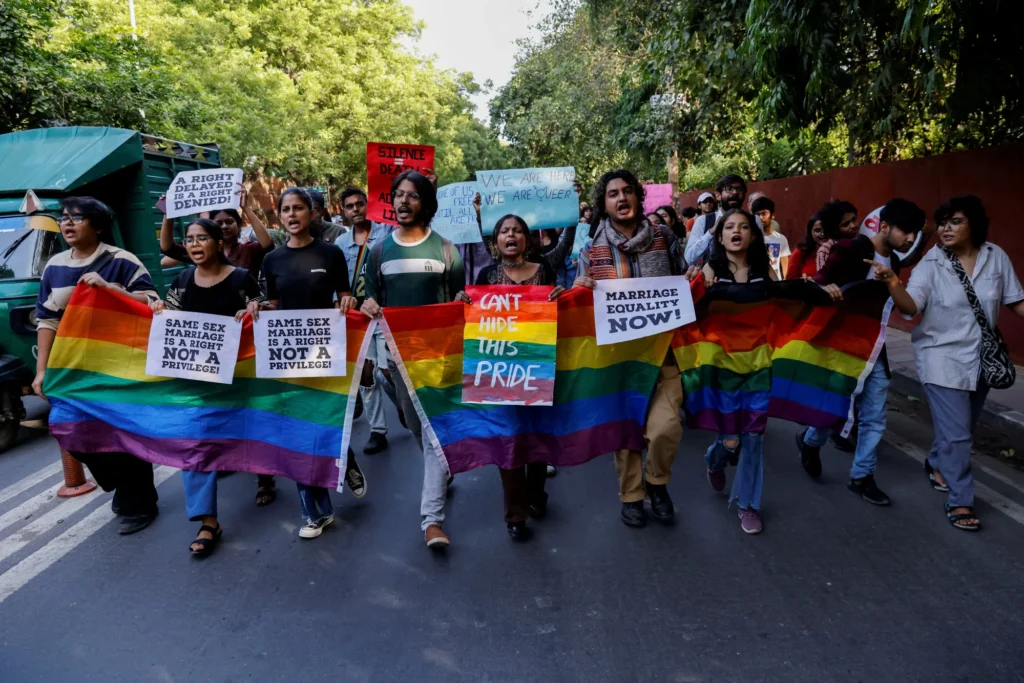In a significant move toward LGBTQ+ recognition, India’s main opposition Congress party has established an internal unit to advocate for LGBTQ+ rights, while another opposition party has appointed a community member as its spokesperson for the first time. These political developments mark a turning point for LGBTQ+ inclusion after years of legal and social setbacks.
The Supreme Court of India decriminalised homosexuality in 2018, but the LGBTQ+ community faced disappointment last year when the court declined to legalise same-sex marriage, leaving the issue for parliament to decide. Despite this, the political landscape is slowly evolving to reflect the need for inclusivity.
This week, Prime Minister Narendra Modi’s government canvassed public opinion on policies aimed at making laws more inclusive for the LGBTQ+ community. However, same-sex relationships remain largely taboo in the conservative country of 1.42 billion people. The government previously told the Supreme Court that same-sex marriages were incompatible with the traditional “Indian family unit concept,” which it said consists of a husband, wife, and children.
In a historic move, the Congress party appointed LGBTQ+ activist Mario da Penha to lead its newly created LGBTQ+ rights unit within the All-India Professionals’ Congress division. This initiative aligns with Congress’s earlier campaign promise to bring forward legislation that would legalise civil unions between same-sex couples. “It is the only representative framework for queer people within any recognised national political party in India,” da Penha said on social media platform X, describing the appointment as a key moment for queer inclusion in Indian politics.
Anish Gawande, who was recently named the spokesperson for the Nationalist Congress Party (NCP) led by Sharad Pawar, echoed this sentiment. Gawande became the first openly LGBTQ+ individual to hold such a position in a major Indian political party. Reflecting on his appointment, Gawande said, “If you’d told me 10 years ago that it would be possible to be out and in Indian politics, I would have scoffed in disbelief.”
The Indian government has outlined several initiatives aimed at improving the rights and welfare of the LGBTQ+ community. These include allowing same-sex couples access to food programmes, the ability to open joint bank accounts, and choosing each other as nominees for financial and healthcare benefits without discrimination. On Sunday, the Ministry of Social Justice and Empowerment sought public feedback on how to ensure policies and initiatives are inclusive.
An official from the government, speaking anonymously, stated that efforts are underway to rid policies of any discrimination against the LGBTQ+ community. However, the official did not confirm any immediate plans to introduce legislation recognising same-sex marriages.



